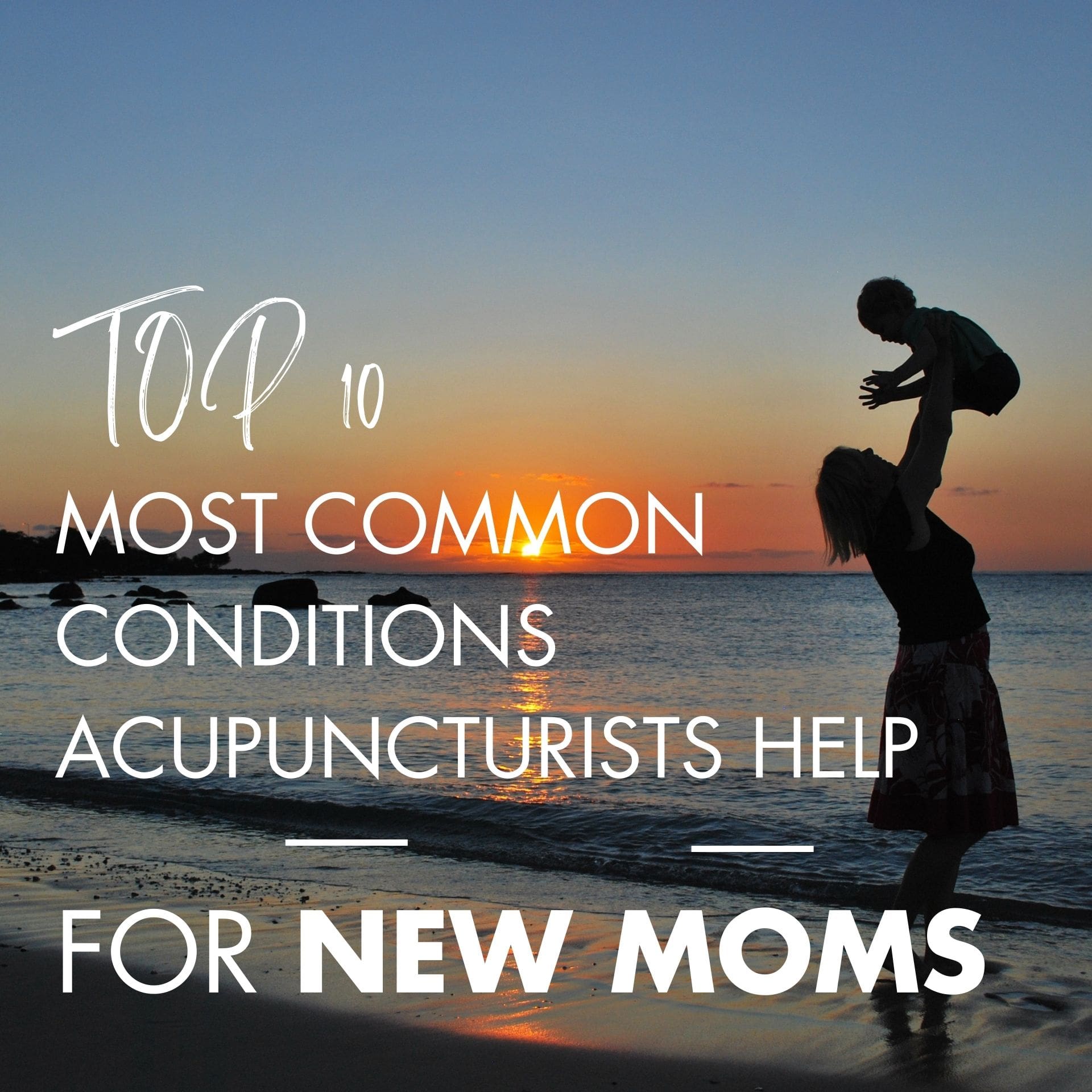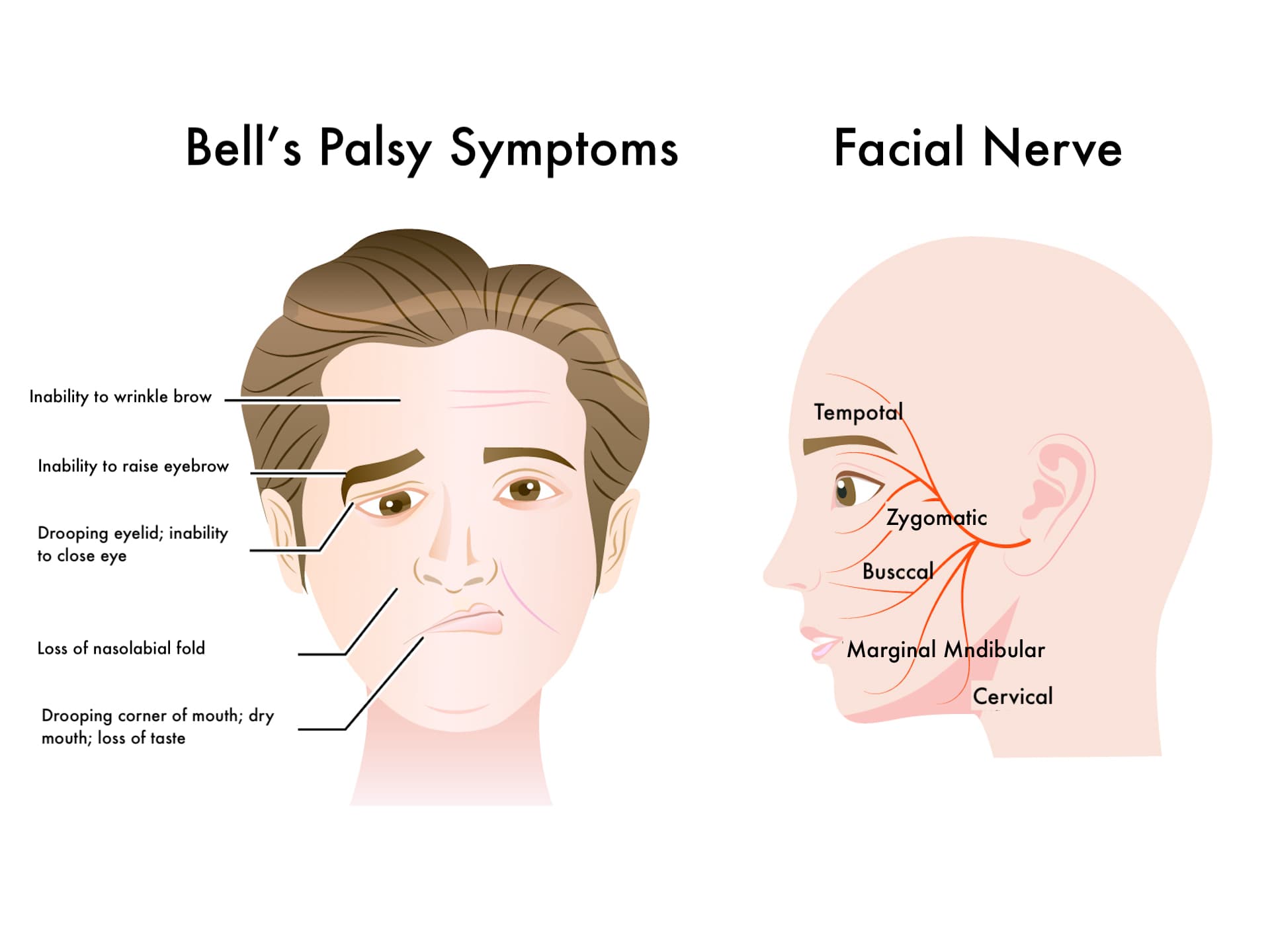Top 10 Questions About Neuropathy: Numbness & Tingling
Having a basic understanding of your condition can also be helpful. In this blog, I'll answer the TOP 10 questions my patients usually ask me about neuropathy.

November 9, 2023
The experience of having a child is a significant and transformative moment for all caring mothers and their families. However, it also comes with many challenging conditions. As acupuncture practitioners, we frequently assist new mothers in managing the TOP 10 conditions that can arise after childbirth. In this blog post, we will explore the most commonly treated conditions by acupuncturists for new moms postpartum.
We understand this can be a lot of information and overwhelming: if you are looking for more support and answers, set up a free consultation with our Licensed Acupuncturist & Pain Specialist, Satoru Ozawa. Share your story, get your questions answered, and learn how you can set yourself up for tremendous success in achieving a healthy life.
M - F: 8am - 6pm Sat & Sun: 10am-3pm

It is quite common for new mothers to experience back pain after childbirth, with almost 70-75% of them being affected. This can be attributed to a number of factors, such as hormone imbalance, muscle weakness, and incorrect techniques used while carrying the baby.
Throughout pregnancy, the uterus and placenta produce a reproductive hormone known as “relaxin.” This hormone works to relax muscles, joints, and ligaments in the pelvis and hip joints, and to soften and widen the cervix in preparation for delivery. However, it can also cause an imbalance in the pelvis, resulting in pelvic tilt. When the left side of the pelvis tilts forward, the left side of the lower back can become tight, and if both sides of the pelvis lean forward, it can cause pain as both sides of the lower back contract.

When the hormone weakens the abdominal muscle, it can lead to an imbalance in the pelvis and cause discomfort. This is because the abdominal muscle plays a crucial role in aligning the spine and pelvis.
Newborn babies typically weigh about 7 pounds and continue to grow rapidly. By the time they reach 6 months, they can weigh around 16 pounds on average. As a new mother, you will need to carry your baby with you wherever you go, including changing their diaper and moving them from bed to cradle. However, improper carrying techniques can cause strain on your back and result in pain.

As per the survey, nearly half of the women who undergo childbirth suffer from headaches or migraines. One of the reasons behind the occurrence of such headaches or migraines is the fluctuation of female hormones, namely estrogen, and progesterone. The levels of these hormones are high during pregnancy, but after delivery, the estrogen level drops significantly, causing headaches or migraines in new mothers.

If you experience weakness in one side of your face, you may have Bell’s palsy. This condition occurs when the facial nerve becomes inflamed and swollen.
The seventh cranial nerve, known as the facial nerve, plays a crucial role in controlling the muscles responsible for facial expressions such as squinting and frowning. It originates from the Pons region of the brain and exits behind the ear, branching out into five different paths: temporal, zygomatic, buccal, marginal mandibular, and cervical branches. Each branch has a specific function in controlling different facial muscles. For instance, the temporal branch controls the movement of the eyebrows, while the buccal branch controls the upper lip for smiling.
It is not yet clear what exactly triggers inflammation or swelling of the facial nerve. However, it is important to note that individuals who are pregnant, have diabetes, or have experienced viral infections such as herpes simplex are more susceptible to developing Bell’s palsy.
For more information, please read the blog post, TOP 10 Questions about Bell’s Palsy that You Wanna Know NOW
It is common for new mothers to experience difficulty with regular bowel movements, known as “postpartum constipation.” This is due to weakened pelvic and abdominal muscles caused by the relaxin hormone and lack of exercise during pregnancy, which results in less frequent peristaltic movement. Constipation typically occurs during pregnancy and up to six weeks after giving birth. If constipation persists beyond six weeks, it may be caused by dehydration, poor diet, stress, or medication side effects.

Have you ever heard of trigger finger? It’s a condition where the flexor tendon in the finger gets inflamed and swollen within the tendon sheath, causing pain and getting stuck in a single position.
The area between tendons and tendon sheath is lubricated, allowing you to smoothly bend your finger for various tasks such as gripping, opening the palm, playing instruments, typing, and writing.
During pregnancy, many women experience fluid retention that can cause joint swelling. This can also lead to swelling in the tendon sheath of the hands, resulting in trigger fingers. While this typically resolves after childbirth as the body regulates fluid retention, some new mothers may continue to experience trigger fingers due to ongoing fluid retention.
It’s causing them pain every time they open or close their hands, which is bothersome. They still need to be able to hold their babies and run errands.
For more information, please read the blog post, Top 10 Most Common Questions about Trigger Finger You Wanna Know Now

Carpal tunnel syndrome is a condition that affects the wrist and hand. It occurs when the primary nerve, known as the median nerve, which runs from the neck through the wrist to the hand, is compressed. This can cause pain, numbness, and tingling in the hands. Pregnant women are more likely to experience this condition due to fluid retention in their joints, which can put pressure on the nerve in the wrist.
It is common for pregnant women to experience an increase in blood pressure. During pregnancy, blood pressure tends to decline until the 20th week, after which it gradually rises until delivery, typically between the 37th and 43rd week. It is crucial to be extra careful during this time as the body is more susceptible to high blood pressure. Additionally, new mothers may experience high blood pressure due to lack of sleep and stress.

Many women go through hair loss after giving birth. According to a survey, 63% of participants reported losing hair within 6 months. 17% experienced hair loss between 7 months to a year, while only 3% experienced hair loss for over a year.
Hair loss in women can occur due to a decrease in female hormones, particularly estrogen and progesterone, which rise during pregnancy and drop significantly after giving birth. This reduction in estrogen can affect the hair growth cycle, which is why women may experience hair loss postpartum. Although this is a natural occurrence, some women may continue to lose hair six months to a year after giving birth due to factors such as stress, lack of sleep, and inadequate nutrition.
Hair loss can be attributed to high levels of stress. Parenting is considered one of the toughest jobs, which can be quite overwhelming for new parents, leading to increased stress levels, particularly with their first child.
Lack of sleep cause losing hair for everybody. Especially people with newborn babies because they wake you up crying, nursing, or changing their diapers at night. When you can’t sleep enough, you lose zinc which plays a significant role in growing hair.
Maintaining healthy hair growth requires adequate nutrient intake, particularly vitamin B, protein, iron, zinc, and vitamin A. It is crucial to consume a well-balanced diet to avoid hair loss post-childbirth.

New mothers may experience symptoms such as anxiety, worry, irritability, loss of appetite, mood swings, or instability, which are commonly known as Baby Blues. These symptoms can be attributed to imbalanced female hormones. After childbirth, the level of female hormones decreases significantly and can cause mood swings for up to six weeks. However, in some cases, these symptoms may persist for longer than six months.

Many new mothers who give birth through vaginal delivery may develop anal hemorrhoids, which can be normal for a few weeks, but in some cases, it can persist for months. This condition can cause discomfort, pain, and difficulty while sitting or having bowel movements, which can lead to constipation.
We'll be happy to answer your questions.
Yes. Acupuncture is very effective for all these ten conditions. During the initial acupuncture session, we examine the severity of the conditions and decide how often you should return to get treatments.
After a period of six weeks to three months, a majority of our patients have reported feeling significantly better and have made progress toward a 75% recovery. However, it is important to note that complete recovery cannot be guaranteed.
As a general rule of thumb, the sooner one receives treatment, the better the prognosis.
Some patients come for low back pain treatment months or even years after the initial onset, and these chronic cases are often more complex and take a much longer time to achieve results. Even then, recovery is not guaranteed.
When it comes to the frequency of acupuncture treatments, there is a general guideline to follow. If you are experiencing a new or acute condition, more frequent visits will be necessary to achieve optimal results. However, if you are dealing with a chronic or long-standing issue, a less frequent approach may be more beneficial. Typically, those with new conditions will receive 2-3 treatments per week, while those with chronic conditions will only need to come in once a week.
If you or someone you care about has been diagnosed with any of these 10 conditions and would like to find out more about Acupuncture and its suitability for your situation, please send us a message via our contact page. Thank you for taking the time to read this blog post! I appreciate your interest and hope to see you again for future posts.
We understand this can be a lot of information and overwhelming: if you are looking for more support and answers, set up a free consultation with our Licensed Acupuncturist & Pain Specialist, Satoru Ozawa. Share your story, get your questions answered, and learn how you can set yourself up for tremendous success in achieving a healthy life.
The following blogs discuss natural remedies, acupuncture, Chinese medicine, Chinese herbs, and tips for maintaining good health.
Having a basic understanding of your condition can also be helpful. In this blog, I'll answer the TOP 10 questions my patients usually ask me about neuropathy.
Neuropathy is a condition that occurs when peripheral nerves are damaged. This is Jeff's successful story of acupuncture treatment.
There are 4 steps that you can do by yourself to reduce the tingling, prickling, burning and numbness and increase the sensation of your feet.

Satoru Ozawa
hariQ acupuncture & herbs
Licensed acupuncturist, Certified Athletic Trainer and Chinese herbal specialist. With his 10 years of experience in Oriental Medicine, he will recommend the best natural Remedies, including Acupuncture, Chinese herbs, and health tips to relieve your suffering.
4 comments